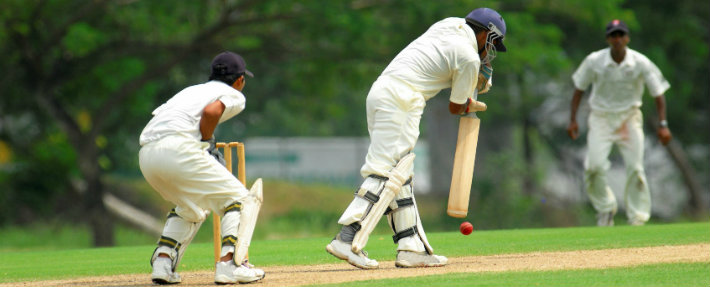
Scientists from the University of Stirling have discovered that dehydrated cricket players suffer impaired motor skills that significantly reduce their performance on the field.
In the first study to fully assess the effects of dehydration on cricket-specific skills, including throwing and bowling speed and accuracy and running speed, experts found reductions in speed and accuracy for players who were moderately to severely dehydrated.
Fielders suffered a significant reduction in throwing speed and accuracy for overarm and sidearm throws, with sidearm throw accuracy dropping by 22 per cent.
Researchers from Scotland’s University for Sporting Excellence also found bowlers experienced a drop in bowling speed and accuracy. Accuracy decreased by 20 per cent on average in this group.
Batsmen were only mildly affected by dehydration but took slightly longer to complete three runs, with players running two per cent slower on average.
Dr Stuart Galloway of the Faculty of Health Sciences and Sport, said: “The large majority of players we observed suffered diminished abilities in fielding and bowling when dehydrated. In particular, 85 per cent of the fielders and bowlers we studied were unable to maintain levels of speed and accuracy when dehydrated.
“It is crucial that cricketers take sufficient fluids during prolonged periods of play as we now know the true impact this has on performance across different aspects of the game. Playing in hot, humid conditions means players can lose a lot of fluid quickly. They need to consider how best to keep hydrated so their performance does not suffer. We suggest keeping body weight loss to within one per cent of initial hydrated weight, so the average male would not want to lose more than around 750ml of fluid.”
A group of 30 elite cricketers from the Sri Lankan national training squad participated in two field trials conducted seven days apart.
Each trial consisted of a two-hour standardised training session with skills assessed before and after each session. Cricketers training in the hot and humid conditions were adequately hydrated at one session and had fluid intake restricted in the other.
Notes for editors
- Background information
The paper ‘Effects of Dehydration on Cricket Specific Skill Performance in Hot and Humid Conditions’ is published in International Journal of Sport Nutrition Exercise Metabolism and can be accessed here.
10 fast-bowlers, 12 fielders and 8 batsmen participated in two field trials conducted seven days apart. In one they were fully hydrated and in the other their fluid intake was restricted.
